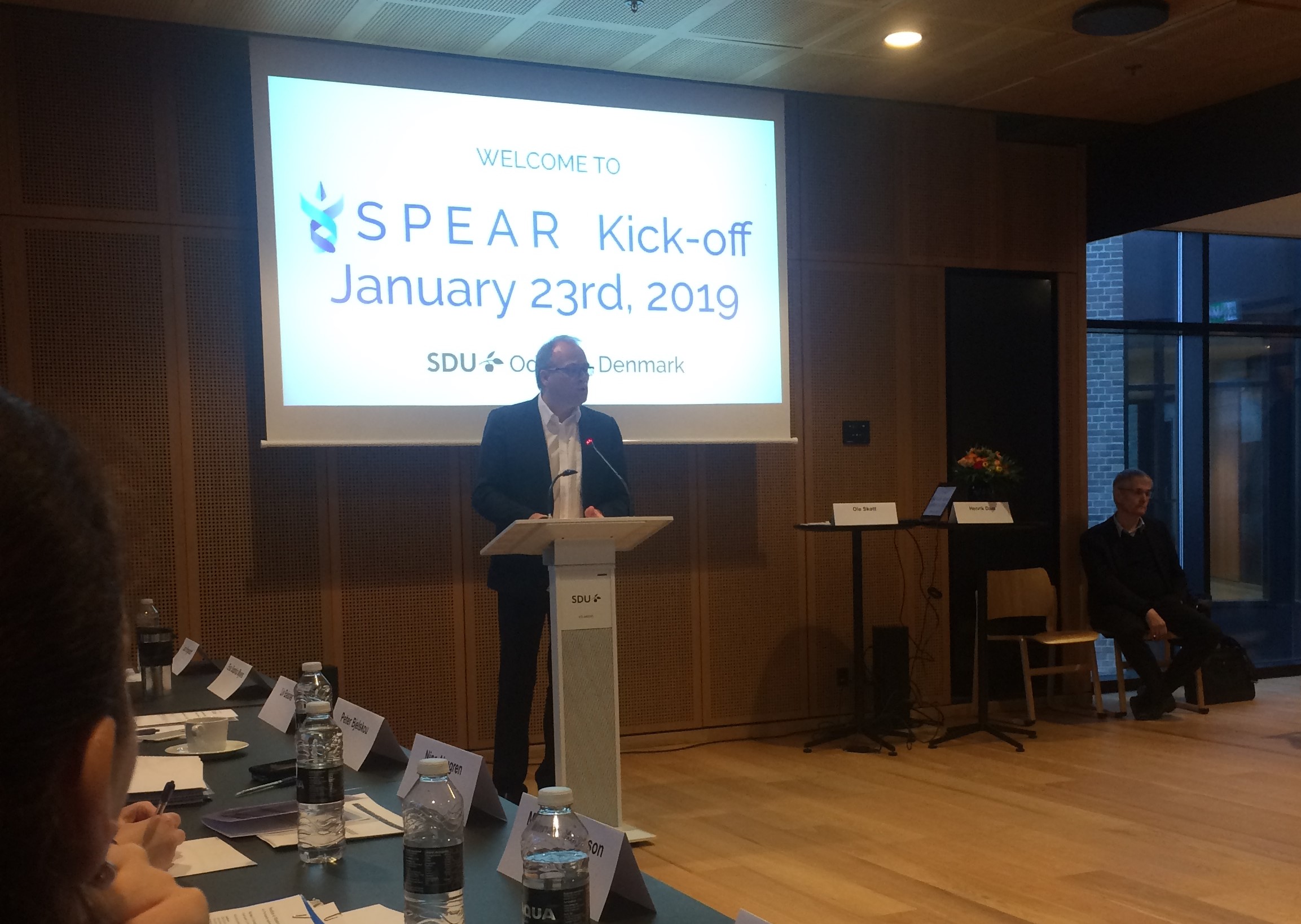Welcome speeches
The meeting started with inspiring speeches by SDU’s scholars.
- SDU’s Vice-Chancellor Henrik Dam emphasized the importance of structured and systematic efforts to be applied within SPEAR “in taking on the complex and notoriously difficult task of practicing diversity, inclusivity and equity in European Academia – to the benefit of everyone: the students, researchers, the universities as work-places, the industry and other sectors who hire alumni as well as the wider society”.
He also underlined that recognition from the European Commission for the support and collaboration across the European academic landscape is uplifting.
- Mr. Ole Skøtt, the Dean of Health Sciences was impressed by a presence of many “strong advocates for both the academic and the GE-agenda”. He noted that “with such a competent crowd, SPEAR is sure to have a deep and lasting impact on all the participating organizations and their national contexts”.
According to Mr. Skøtt, “there is now an acute awareness, appetite and momentum for a practice-oriented approach to ensuring diversity, inclusivity and equality, in academia as elsewhere” and “SPEAR is a qualified and timely response to this appetite and momentum”.
- The welcome words by SPEAR’s coordinator, Ms. Eva Sophia Myers explained SPEAR’s mission in tackling an equality and diversity problem by making a real mark on daily university practices of hiring and promoting, providing equal opportunities, decision making, conducting research, educating new talent and “breaking new ground which will benefit and effect everyone equally”. She also voiced SPEAR’s aspirations for the project’s solutions to “work for equality in all areas”.


